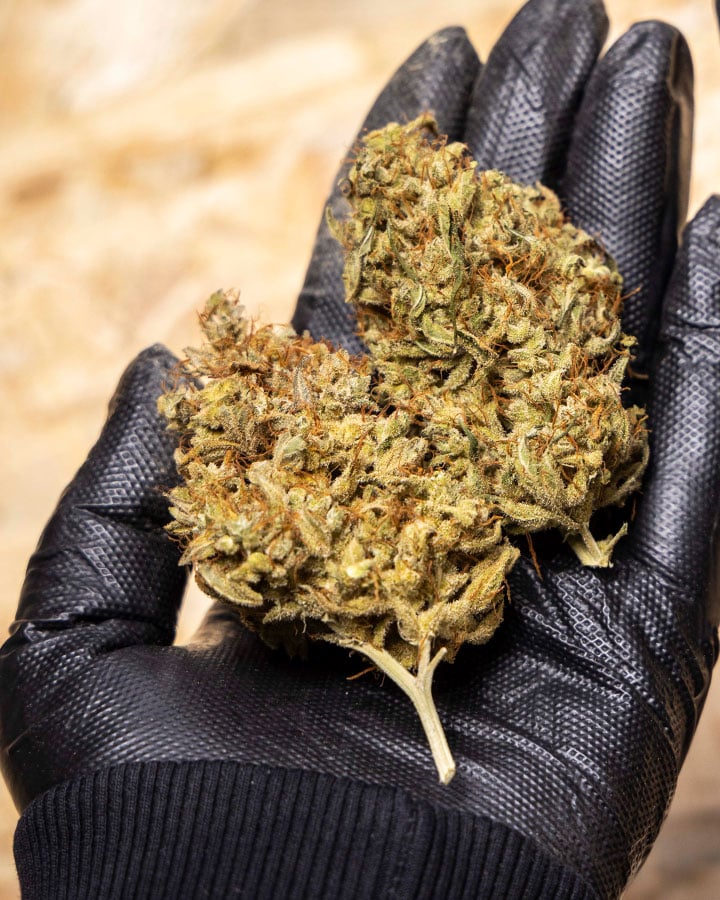The Growing Issue of Weed in Jebel Ali: A Look into the Challenges and Solutions

Jebel Ali, an industrial hub and residential area in Dubai, is known for its bustling ports, warehouses, and increasing number of residents. While the region is often associated with business and development, one issue has been gaining attention in recent years: the use and trade of illegal substances, particularly weed (cannabis). While the UAE has strict drug laws, including severe penalties for the possession and use of marijuana, its presence in Jebel Ali cannot be overlooked. This article will explore the growing concern of weed in Jebel Ali, its implications, and potential solutions.
The Rise of Weed in Jebel Ali
As Dubai continues to grow into a global city, its increasing expatriate population, young professionals, and tourists have brought with them diverse lifestyles and cultural influences. Alongside this growth, there has been a rise in the number of people experimenting with drugs, including marijuana. Weed is one of the most commonly used illicit substances globally, and it’s no different in Jebel Ali, where both residents and workers in the industrial zone have been reported to engage in its use.
Jebel Ali is home to a significant number of warehouses and labor accommodations. This, coupled with the area’s remote location, can sometimes provide a sense of isolation for workers. In some cases, this isolation leads to unhealthy coping mechanisms, including substance use. Moreover, weed, in particular, has gained popularity due to the belief that it’s less harmful than other illicit substances. Its reputation as a relatively low-risk drug, particularly in comparison to harder narcotics, may contribute to its growing usage.
The Legal Implications in the UAE
The UAE has some of the strictest drug laws in the world. Possessing, using, or trafficking drugs, including marijuana, can lead to severe legal consequences. Even small amounts of weed can result in a lengthy prison sentence, a hefty fine, or, in extreme cases, deportation. The country has a zero-tolerance policy when it comes to drug offenses, which includes both residents and visitors.
In recent years, the UAE authorities have increased efforts to combat the illicit drug trade. This includes conducting regular raids, monitoring social media platforms for drug-related activities, and using drug-sniffing dogs at borders. Despite these efforts, illegal substances, including weed, continue to circulate within the community, challenging law enforcement.
Factors Contributing to the Problem
Several factors contribute to the presence of weed in Jebel Ali. The first is the area’s role as a commercial hub, which brings in a diverse workforce. Many of these workers come from countries where marijuana usage is either legal or more culturally accepted, which can lead to a difference in attitude toward the substance. In some cases, workers bring weed with them into the UAE, either for personal use or for sale.
The second factor is the high-stress environment in which many of Jebel Ali’s residents and workers live. With long working hours, physically demanding jobs, and the pressure to send money back home to their families, many individuals may seek out weed as a way to unwind or deal with stress. Unfortunately, while weed may offer temporary relief, it can create a cycle of dependence and further complicate individuals’ personal and professional lives.
Another critical factor is the availability of weed. Despite the strict drug laws, marijuana is still accessible in some parts of Dubai, including Jebel Ali. The underground drug trade operates through networks that exploit gaps in enforcement and the growing demand for illicit substances. While authorities continuously work to clamp down on these networks, the demand for drugs persists.
Social and Economic Impact Weed in Jebel Ali
The presence of weed in Jebel Ali has far-reaching social and economic implications. First, the consumption of illegal drugs can lead to a breakdown in community trust.
Companies in the region rely on a steady and productive workforce, and drug-related absenteeism or inefficiency can impact business operations.
Addressing the Problem: Possible Solutions
While addressing the issue of weed in Jebel Ali may seem complex, there are several strategies that can help reduce its prevalence.
- Education and Awareness: The first step in combating the problem is education. Both residents and workers need to be educated on the legal risks and health consequences of drug use. Campaigns that highlight the dangers of weed and other illegal substances can be an effective way to reduce demand.
- Support Systems for Workers: Mental health and stress management are often overlooked in the high-pressure environment of industrial zones.
- Stronger Enforcement: Continued efforts to strengthen law enforcement, including more targeted raids and surveillance, will be essential in curbing the illegal drug trade in the region. Greater cooperation with international law enforcement agencies could also help dismantle drug trafficking networks.
- Community Involvement: The local community, including businesses and expatriate organizations, can play a crucial role in helping to prevent drug use.
Conclusion
Weed in Jebel Ali is a growing issue that must be addressed through a multifaceted approach. While the UAE’s strict drug laws provide a deterrent, the factors that contribute to marijuana use in the region—stress, isolation, and accessibility—continue to pose significant challenges.
You’re the best when it comes to marijuana products , always taking care of me. Definitely recommending you to my friends. Thanks for the quick delivery .Really happy with the product .As usual, it’s top-notch. Keep it up you. you can contact them on email Scenthub43@gmail.com and also there Telegram : https://t.me/Scenthub43
wow Thanks for the referral they have great service and got the best weed around. and the delivery is so smooth

Thanks for always being reliable! I can always count on you for good product.
You’re the go-to in the area for a reason. Always a smooth experience